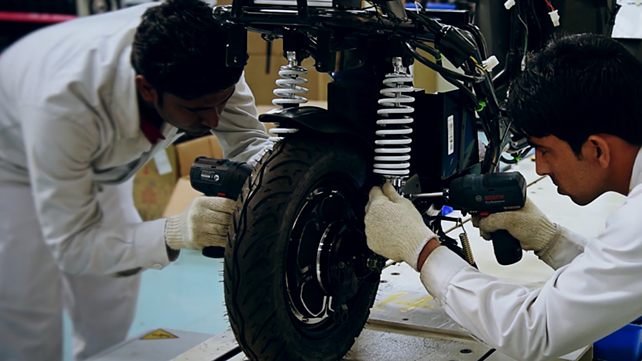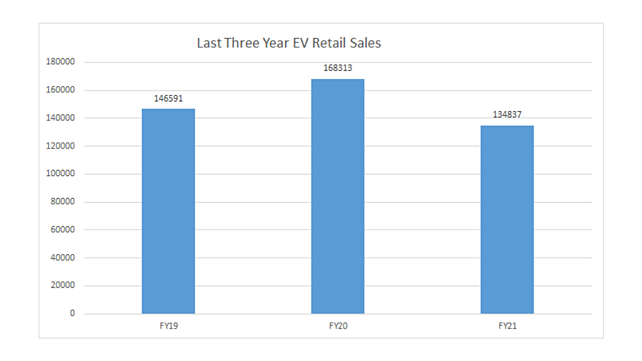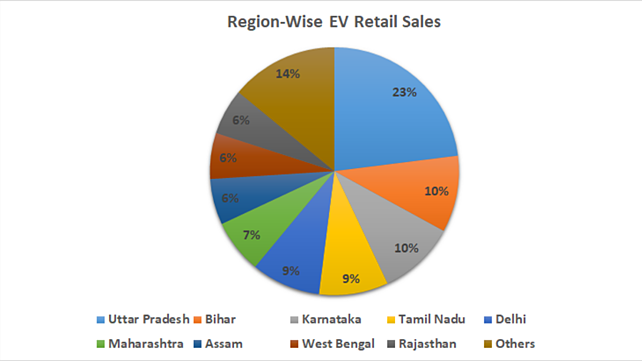
Electric vehicle (EV) retail sales declined by 20% at 134,837 units in the last fiscal year as compared to 168,313 units of FY20, according to the data fetched from Vahan Portal.
The decline in sales of electric vehicles is because of the dismissal performance in H1 due to the national lockdown of 40 days and low sales of electric three-wheelers due to fear of coronavirus.
In FY21, the EV sales oscillated between two extremes of high and low. The monthly sales began as abysmally low, transformed into the highest-ever registered figures by fiscal end.
The registered EV sales during Q1 of FY21 shrunk 73% YoY to 8,387 units, whereas the Q4 FY21 sales rose by 33% YoY to reach 61,401 units, according to the JKM research report.

The only silver lining among the EV segment is the growing sales of high-speed electric scooters, which grew by strong double-digit growth of 49% at 39,845 units in FY21 compared to 26,679 units in FY20.
Among the high-speed electric two-wheeler manufacturers, Hero Electric sold the maximum number of units, attaining a 37% share of the market, followed by Okinawa and Ampere with 18% and 15% market shares, respectively.
On the other hand, overall electric three-wheeler sales in FY21 declined by 38% at 86,555 units in FY21 compared to 138373 units in FY20. This is mainly because of a steep decline of 43% in the sales of electric three-wheeler passenger carriers at 76789 units. On the contrary, the cargo electric three-wheeler sales rose to 97% over the same period, taking the share of cargo-E3W to 11% of the total registered electric three-wheeler sales.

Source: Vahan, JKM Research
Regarding the (state/UT) region-wise sales, Uttar Pradesh is the leading state that registered 23% electric vehicles of total registered EV sales in India, followed by Bihar and Karnataka with 10% share each.
Industry experts were expecting a sequential demand generation to continue well into the ongoing fiscal year FY22 on account of increasing consumer awareness, introducing a sizable number of new models, and technological advancements along the EV value chain, which will lead to the realisation of greater value for money.
However, the rising cases of coronavirus and major plant shutdowns across the country will disturb the demand.
Nagesh Basavanhalli, Group CEO, Greaves Cotton, which makes both electric two-wheeler and three-wheeler, expects that growth trajectory will continue before the upcoming festive season and the outlook for personal mobility remains strong.